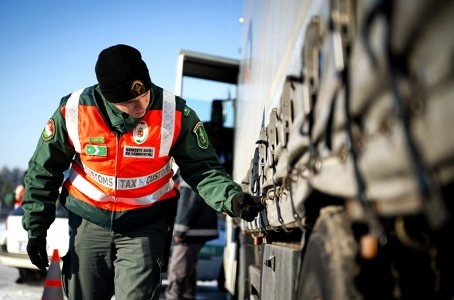World Customs Organization’s Free Zone Guidance Calls for Increased Involvement from Customs Administrations

By: Matt Milton
In December 2020, the World Customs Organization (WCO) released a paper entitled “Practical Guidance on Free Zones”(PDF) intended to help member states address risks posed by illicit activities – including smuggling, money laundering, and counterfeiting – occurring in their free zones. This issue has become a focus at the WCO, evidenced by its feature in the June 2020 issue of their news magazine as well as their publication of a 2019 research paper on the “extraterritoriality” of free zones. CRDF Global has also been working to highlight this issue – independently, through activities like our November 2020 webinar entitled “Special Economic Zones: Addressing Proliferation Challenges through Best Practices in SEZ Management,” as well as through our U.S. Department of State-funded work in countries like Jordan. The overarching goal of these efforts is to raise awareness of the criminal activities happening in poorly governed zones (especially in the context of weapons proliferation) while also emphasizing the role that Customs Administrations can and should play in providing oversight within those zones.
A glaring problem in the area of free zone governance is the fact that, for all the guidance that exists on the issue, essentially none of it is legally binding. The WCO’s Revised Kyoto Convention (RKC) Specific Annex, which specifically deals with Customs oversight in free zones, is optional for member states. Only 26 have decided to accede to that Annex, six of which have acceded with reservations. The Organisation for Economic Co-operation and Development’s (OECD) Code of Conduct for Clean Free Trade Zones is another nonbinding (though still important) legal instrument. Even private entities are working to address the problem through initiatives such as the World Free Zones Organization’s Safe Zone certification program. A small exception – and maybe even a glimmer of hope – is the legally binding 2018 Protocol to Eliminate Illicit Trade in Tobacco Products, which established a precedent by including free zones in its purview, but of course is only focused on tobacco products.
While still not legally binding, the WCO Practical Guidance is an important step toward improving governance of free zones. With 183 members, the WCO carries significant weight in the area of global trade and especially in Customs matters. This guidance, coupled with the abovementioned recommendations from OECD and the precedent set by the Tobacco Protocol, can be seen as a precursor to mandatory inclusion of Customs in the establishment and operation of free zones all over the world.
The Guidance
The Practical Guidance outlines the role that Customs Administrations should play in the governance of free zones even before the decision to create a zone is made. “Territoriality” is a major consideration here, as some states consider free zones to be “Customs-free territories,” which restricts Customs from collecting duties but may also limit their ability to search and seize illicit goods. Prior to establishment of a zone, a state should update its legal/regulatory framework to ensure that zones are considered a part of Customs territory first, with any regulatory concessions (such as duty exceptions and simplified Customs processes) to be granted later.
Following a zone’s establishment, the host country should also give Customs a seat at the table when reviewing applications for zone tenants. Residing in a free zone comes with myriad advantages for a business, and Customs is well equipped to vet zone applicants to ensure that they will be responsible stewards deserving of these benefits. Customs can review an applicant’s trading history for any compliance issues in order to filter out bad actors. Further, Customs can leverage the country’s Authorized Economic Operator (AEO) program to streamline this vetting.
Addressing actual operations within a zone, the Practical Guidance offers recommendations to states that would allow Customs to go about their normal duties unimpeded. These are:
– Provide Customs with access to a zone’s digital records system, which should contain information on inbound/outbound consignments as well as inventory data for warehouses within the zone;
–Empower Customs to perform audits within a zone using provided data;
–Ensure that Customs’ rights to search and seize consignments is retained within the zone; and
–Authorize Customs to conduct on-site checks and inspections of free zone occupants at any time.
The final sections of the document’s body provide suggestions for facilitating coordination among state-level agencies as well as cooperation between Customs Administrations. Mechanisms such as regular outreach meetings with zone occupants and operators would “enable Customs and the private sector to work together to solve any issues and challenges in free zones.” Customs-to-Customs cooperation would allow for exchange of relevant information, such as notification of seizures or high-risk shipments, that can increase enforcement and provide valuable insight into typologies of smuggling.
Security Context
While the guidance provided by the WCO and other organizations is primarily focused on addressing counterfeit goods and trade-based money laundering, these recommendations are also relevant in the context of nonproliferation. Military and dual-use goods may be smuggled in much the same way as fake handbags or exotic wildlife. Increasing Customs oversight in free zones – and codifying that oversight in national law ¬– will allow states to better manage the trade in weapons-relevant goods. While the “gold standard” of compliance and enforcement would be universal adoption of the RKC Specific Annex D, that goal is currently out of reach. This Practical Guidance is a welcome step in the right direction and should be used during outreach activities sponsored by the WCO and donor governments hoping to bolster global security and strengthen the rule of law.



